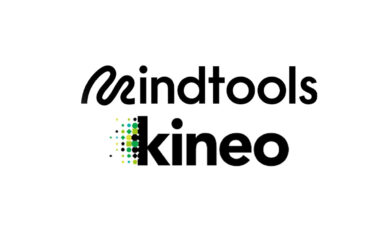Just a few years ago, remote working was something that I viewed as a rare benefit, a perk that very few employees got to take advantage of.
Employees were asking for it, pleading even, but many organizations were hesitant to commit. Bosses and team leaders felt their employees or team members wouldn’t be able (or they didn’t trust them) to produce the same results working from home.
What Is Productivity Paranoia?
This attitude was described in a 2022 Microsoft survey as Productivity Paranoia: “where leaders fear that lost productivity is due to employees not working, even though hours worked, number of meetings, and other activity metrics have increased.”
When COVID-19 hit in March 2020 hit, everything changed. Organizations had no choice but to move great swathes of business activities to the comfort of their people’s own homes.
Fast forward a couple of years, and remote and hybrid working is now the norm for many organizations.
Research in early 2022 by global consultancy firm McKinsey & Company found that 58 percent of Americans have the opportunity to work from home at least one day a week, and 35 percent are able to do so five days a week.
Engagement and Trust
But have attitudes toward remote working really changed that much in such a short space of time?
In September 2022, Microsoft surveyed 20,000 people across 11 countries to explore how remote working affects engagement and trust.
The findings showed an enormous divide between workers and their bosses: 87 percent of workers said they are productive when working from home, but only 12 percent of managers were fully confident about their hybrid team’s productivity.
The results piqued my interest, so I wanted to find out if the views of leaders and team members among our Mind Tools users and followers would reflect the Microsoft survey.
We asked employees and team members, “Do you feel trusted to work remotely?”
And we asked managers, “Do you trust your staff to be as productive at home as they are in an office?“
Our snap poll showed that Mind Tools users – whether team members or team leaders – both feel trusted and display trust in others. Well done!
Of the 429 respondents who answered the question, “Do you feel trusted to work remotely?”:
- 80 percent said yes
- 13 percent said sometimes
- 8 percent said no
And of the 668 managers who answered the question, “Do you trust your staff to be as productive at home as they are in an office?”:
- 86 percent said yes
- 14 percent said no
Our poll sparked an engaging conversation amongst our followers about trust within an organization.
Watchful Eye
Ric Raftis, founder of Dynamic Community Leadership in Australia, said, “I find that very sad for the people that work for the 14 percent.” BT Global Service Manager, Ryan Pennington, replied, “I think it says more about what they do at home than their staff.”
So why is it so hard for that 14 percent to trust their employees?
Organizations generally go through a lengthy recruitment process to select staff, so why do they think that they can’t be trusted to do their jobs unless they’re under the watchful eye of their manager?
Remote working can offer relief to those who feel that they’re victims of surveillance and micromanagement at work, suggesting that micromanagers are the real issue, not employee productivity.
Writing from the U.S., Reimbursement Supervisor, W. Rubalcava, said that she was, “Beyond productive working from home. Especially without being micromanaged, or co-workers interrupting my flow in person.”
Avoiding Micromanagement
Credit and Collection Supervisor, Rose Chunara, based in Canada, suggested that managers who disagree with home working are the most likely to be micromanagers. She added, “Empowering [your] team brings powerful results.”
However, it’s possible that managers may be acting out of concern about not hitting their goals, and don’t even realize they’re micromanaging.
So how can you avoid micromanagement within your organization, and end productivity paranoia, once and for all?
Here are a few things employees and organizations can do to build trust and encourage a harmonious hybrid working environment:
1. Be Transparent
Being clear about what you’re working on can help organizations track productivity more easily, and make sure that everyone is working towards the same goal.
2. Utilize the Tools You Have
If productivity paranoia is the main problem when it comes to trusting employees, it might be a good idea for organizations to look at the tools they have in place to facilitate hybrid and remote working, and for employees to make sure that they’re making the most of them.
3. Communicate Clearly
With instant messaging, video calls, and project management tools, staying connected with employees and measuring productivity can be achieved. You just need to ensure that all parties are checking in regularly.
4. Use Feedback Regularly
Team leaders and team members should feedback to one another on how remote or hybrid working is working out for them. Organizations can develop and evolve their rules for hybrid working based on this feedback.
Does your organization trust you to work from home productively? Share your thoughts, below.




